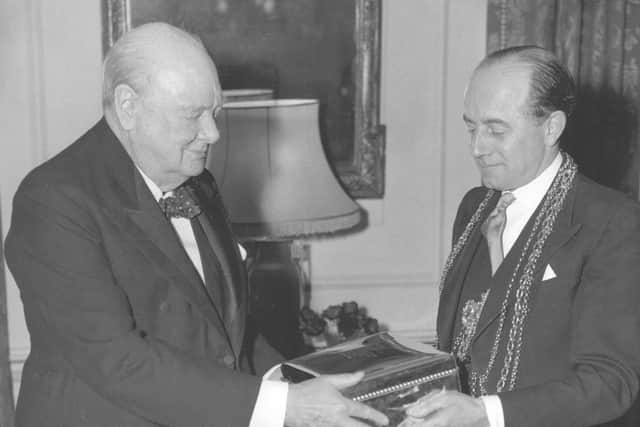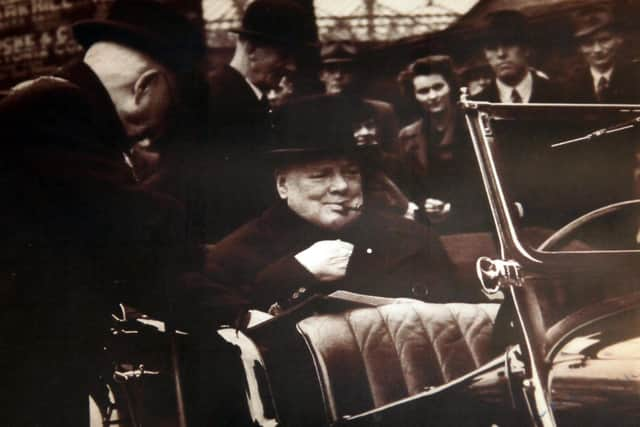Winston Churchill's links with Harrogate highlighted by new discovery by Knaresborough Museum Association
and live on Freeview channel 276
The committed and knowledgeable team behind Knaresborough Museum Association have come across old issues of Knaresborough Post and Ackrills Annuals.
This follows the stunning success of the town’s first-ever community archaeology festival last October which attracted more than 1,000 visitors and included a tribal chieftan's hand axe from 4,000 years ago discovered just outside Knaresborough.
Advertisement
Hide AdAdvertisement
Hide AdThe charity’s latest find features an important part of the 20th century – the day Winston Churchill visited Harrogate and Knaresborough during World War Two.


The pages of Ackrills Annuals, which were published for decades by the original owners of the Harrogate Advertiser and Knaresborough Post, show how Britain’s most famous Prime Minister came to Harrogate in 1944 when he held a military conference with Field Marshall Montgomery in the run-up to D-Day.
The legendary leader was no stranger to the area.
He first visited Harrogate in November 1900 to give a talk in the Winter Gardens about his experiences in the Boer War.
Aged 26, Churchill stayed at the newly-opened Majestic Hotel.


Advertisement
Hide AdAdvertisement
Hide AdHis time in the town saw him organise a ‘charge of the Harrogate Bath Chair men’ which saw entrants lined up at the top of Parliament Street before racing down the hill, the winner being whoever crossed the finishing line outside the George Hotel.
Churchill’s return visit in 1944 came as Britain was in the final stages of the Second World War.
After being met at the railway station by the Mayor of Harrogate, who invited him to sign the visitors book in the council offices, the Prime Minister received a special cigar box from Ogden Jewellers of Harrogate.
It has been suggested by historians that, had a Nazi invasion of Britain taken place, the Royal family would have been evacuated to Newby Hall while Churchill’s HQ would have relocated to Grove House in Harrogate, which was bombed just once in WW2 in 1940.
Sources: Knaresborough Museum Association, Harrogate Civic Society.